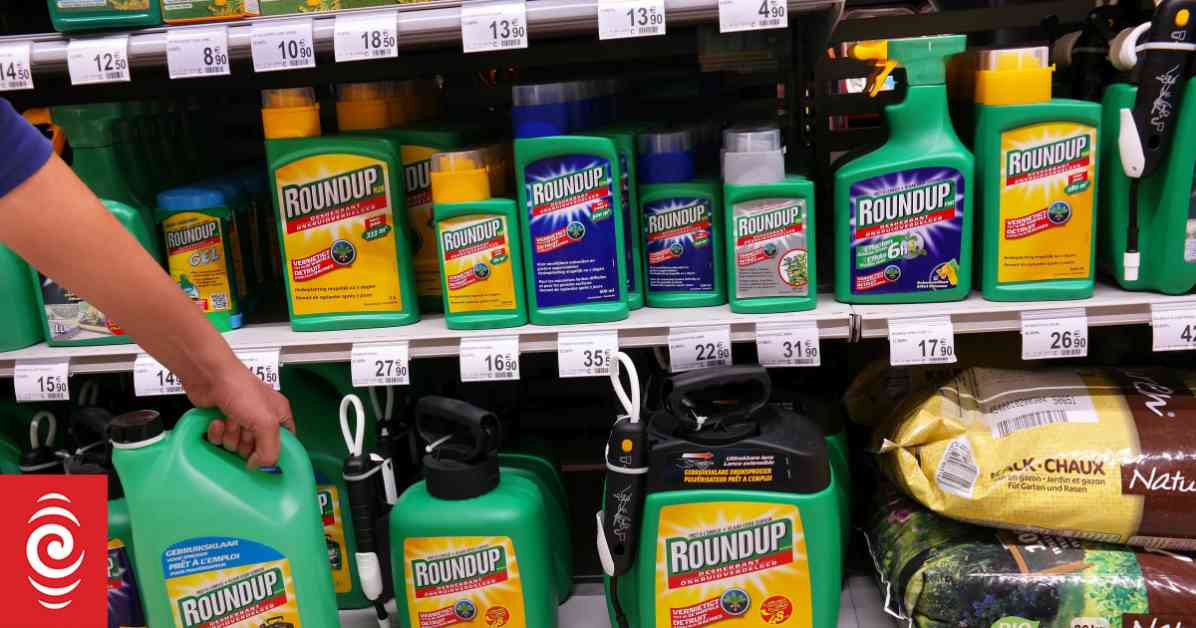Environmental Group Takes on Regulator Over Roundup Herbicide
A recent clash between an environmental group and the country’s herbicides regulator has stirred controversy over the safety of the widely-used weedkiller Roundup and its active ingredient glyphosate. The discord stems from the regulator’s assertion that the herbicide is not banned in any major regulatory jurisdiction, despite mounting concerns about its potential health risks.
According to a report by RNZ, the Accident Compensation Corporation (ACC) has received 359 claims for injuries related to Roundup since 1990, along with an additional 20 claims specifically naming glyphosate as the culprit. These numbers underscore the significant impact that the herbicide has had on individuals who believe their health has been compromised by its usage.
Glyphosate, the key constituent of Roundup, has come under scrutiny due to studies linking it to cancer. However, Dr. Chris Hill, the General Manager of Hazardous Substances and New Organisms at the Environmental Protection Authority (EPA), has maintained that scientific studies have not definitively proven a connection between glyphosate and cancer. This conflicting information has fueled the ongoing debate surrounding the safety of this widely-used herbicide.
International Perspectives on Glyphosate Bans
The Environmental Law Initiative (ELI) has raised concerns about the EPA’s stance on glyphosate, emphasizing that several countries have taken decisive action to ban the substance. For instance, Vietnam, Fiji, and Qatar have implemented outright bans on glyphosate, while other nations like Mexico are actively working towards similar restrictions. In Europe, jurisdictions such as France, Germany, Austria, and the Netherlands have imposed partial bans on glyphosate, limiting its use in public spaces and domestic settings.
Tess Upperton, a senior legal advisor at ELI, highlighted the need for a comprehensive risk assessment of glyphosate, especially considering its widespread use in New Zealand. Upperton underscored the importance of understanding the environmental and health impacts of glyphosate to ensure the well-being of both individuals and ecosystems. The lack of a thorough assessment of glyphosate’s risks has raised concerns among environmental advocates, who are pushing for greater regulatory scrutiny of this ubiquitous herbicide.
Challenging the Status Quo
ELI’s efforts to challenge the EPA’s decision not to reassess glyphosate have underscored the growing divide between regulatory authorities and environmental advocates. Despite claims from the EPA that glyphosate poses minimal risks when used according to guidelines, ELI and other groups are calling for a more robust evaluation of the herbicide’s impact on public health and the environment. This push for greater transparency and accountability reflects a broader trend towards increased scrutiny of potentially harmful substances in the regulatory landscape.
Bayer, the multinational company behind Roundup, has staunchly defended the safety of glyphosate-based products, citing approvals from leading health regulators in various countries. While some jurisdictions have imposed restrictions on glyphosate, Bayer contends that scientific assessments have consistently found glyphosate to be safe when used as directed. The company’s assertion that glyphosate is not carcinogenic contradicts claims made by environmental groups and underscores the complex nature of the debate surrounding this controversial herbicide.
As the High Court prepares to review the EPA’s decision on glyphosate reassessment, the outcome of this legal battle will likely have far-reaching implications for the future of herbicide regulation in New Zealand. The clash between environmental advocates, regulatory bodies, and industry stakeholders underscores the need for a balanced and evidence-based approach to assessing the risks associated with glyphosate. Only through a comprehensive evaluation of the scientific evidence and stakeholder perspectives can a clear path forward be charted in the ongoing debate over the safety of Roundup and glyphosate-based herbicides.





